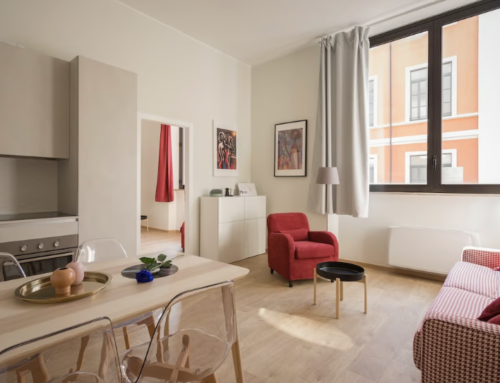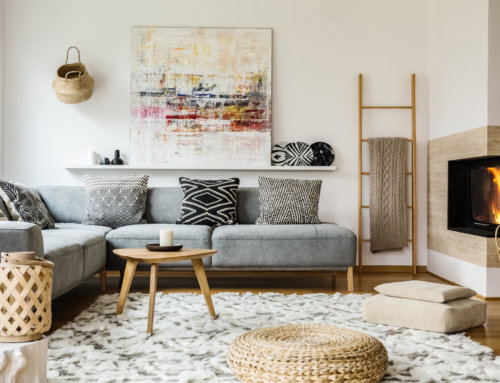
Did you know that there have been over 95,000 deaths from alcohol abuse during the past year? Almost 32 million Americans over 12 use illegal drugs, and that number jumps to 165 million once alcohol or tobacco are included.
Substance abuse disorders are debilitating mental health illnesses that lead to thousands of deaths and strain on the healthcare system. A sober house can help residents maintain sobriety and lead to successful long-term outcomes.
Are you wondering what a sober house is and what you can expect from living there? We have put together a complete guide on sober houses, so keep reading to learn more about it!
What Is a Sober House?
Sober houses, also known as sober living homes or transitional living, entail a place someone stays after residential treatment or to help with sobriety. Typically, a sober living home is a private residence that offers a stable living environment.
These homes are in safe neighborhoods and often have other people trying to maintain or gain sobriety. Some of the top qualities of a sober living home are:
- Transparent procedures and policies
- Clear financial policies
- Legal paperwork that supports resident rights
- Positive and healthy atmosphere
- Privacy protection
- Offer recovery resources and activities
The quality of a sober house is often what makes it an ideal choice for residents immediately after inpatient rehabilitation.
Sober Housing vs Residential Treatment
Residential treatment is an inpatient facility that emphasizes intensive rehab. Most residents stay in residential from one to three months. Residents have access to 24/7 care, medical personnel, therapy, and medication-assisted therapy or detox.
Medication-assisted detox is usually completed in these facilities and helps patients safely withdraw from substances. A qualified medical team must be present for this to happen safely.
During the critical days of withdrawal, inpatient or residential treatment is the recommended route. However, once patients start a path of sobriety, sober housing can help maintain it.
If a person’s living situation is not conducive to a safe recovery space, sober housing can help with the next step. There is no definitive timeline on how long a person should stay at a sober home, and attending outpatient therapy services is quite common.
Experts have found that post-detox care plays a decisive role in long-term success.
What Can You Expect?
The main goal and outcome of a sober living home are the residents’ sobriety. It may seem common sense, but drugs, alcohol, and other addictive substances are banned from sober homes. In most homes, if this rule is broken, the resident will be asked to leave.
Other sober housing rules are:
- Curfew
- Respecting other residents and staff
- Be open to emotional support
- Participation in wholesome activities
- No overnight guests
- Live in the house for majority of the week
- Involvement in drug/alcohol tests
- Attend outpatient therapy or 12-step meetings
- Cell phone restrictions
Keep in mind – each sober home may operate differently. Some could allow pets or full use of cell phones, whereas others have time restrictions or require that a resident remains at a sober living home for at least five days of the week. The strictness of the rules should be outlined clearly in the manual and paperwork.
Additionally, the penalties of a breach of contract should also be highlighted, so residents know exactly what the expectation is.
Sober Living Home Benefits
There are many benefits of starting sober houses or living in one as a person trying to recover from substance addiction. Some of the main benefits are:
- Helps build independence
- Wide support system
- Accountability
- Teaches responsibility (e.g., chores)
- Developing relationships
- Teaching life skills
- Decreases probability of relapse
Many residents find a sober house the perfect transition back to real life. You can expect accountability while at a sober house, including:
- Finding a job or attending school
- Attending 12-step meetings or therapy
- Participate in activities within the house
You will also have chores and other duties within the house, which can help teach critical life skills. Additionally, one of the main benefits is developing healthy relationships. Typically, these houses have other individuals who have similar goals and values that residents are looking for.
A resident can start developing relationships with individuals who can help provide encouragement and support during sobriety.
Long-Term Sobriety Success
Sober homes are one of the steps that lead to long-term sobriety. Mental health professionals and a strong support system can help you with new thinking patterns and coping strategies. Other factors that help with long-term sobriety are:
- Identifying triggers
- Recognize relapse
- Avoid falling back into old habits
- Structured schedule
- Self-care
- Taking time for your finances
- Address the past
A sober home can help you make amends with the past and address short and long-term goals for the future.
Sober Living Home Tips
Are you interested in how to start a sober living home? Starting a sober living home can make a big difference in the community and help prevent relapses. Here are some helpful sober living home tips to get you started:
- Business plan
- Funding
- Staffing
- Marketing
- Policy development
- Treatment resources
Starting a sober living home takes a team effort. Spend the money and time upfront on quality business plans, policy-making, and staffing. Ultimately, the goal of your new sober house is to help provide individuals with a safe and empathetic house that can help develop trust and rapport.
Find a Sober House Near You
Taking the next step in your sobriety process is complex. You may have already attended residential treatments or are just looking for some help maintaining your sobriety.
Taste Recovery is here for you every step of the way, whether you are looking at starting a sober house or require a place to live. Simply search for quality sober homes near you and take the next step in recovery.
What are you waiting for? Contact us today for more information!









